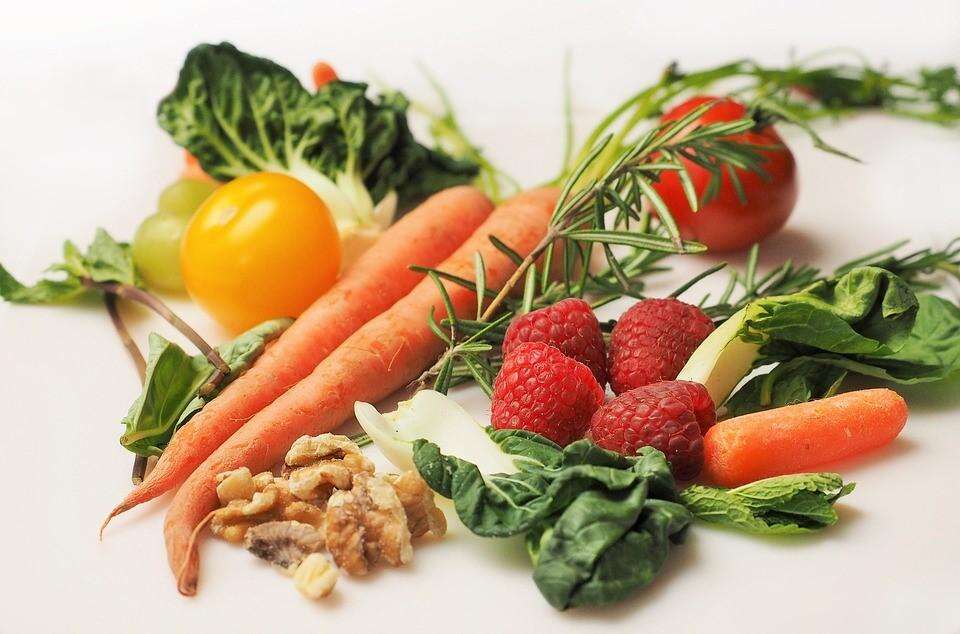Food Sources That Yield the Vital Nutrients for Vegetarians


Choosing to go the vegetarian way can be a big decision! For most non-vegetarian people, it means changing a lifetime of eating habits. While many people choose a vegetarian diet mainly because of health restrictions, there are others who are vegetarian by choice or because of religious compulsions.
Whatever the reasons, whether you are replacing old food habits with new, vegetarian alternatives or have been a vegetarian all your life, a vegetarian diet may be worth the effort. However, a successful vegetarian diet entails more than just excluding animal flesh and products from your diet. It entails making the essential choice of including a balanced and nutritious diet to your lifestyle.
Even a vegetarian diet can be quite varied – from flexitarians (or semi-vegetarians who continue to consume meat, poultry and animal product in small quantities), to lacto-vegetarians (who eat only dairy products among animal products), ovo-vegetarians (who eat only eggs) and vegans (who avoid all animal products, including animal byproducts such as honey and gelatin, too).
No matter the category of vegetarian you fall into, your choice of foods is what is of utmost importance. No single food can provide all the nutrients your body needs. In fact, some nutrients that are common in animal products are amiss in other foods. Hence, to avoid nutritional pitfalls and remain healthy, a vegetarian diet calls for meticulous planning.
Here are some quick tips for vegetarians on the best sources of the vital nutrients needed by their body, that can help you make sure you are meeting your nutritional needs each day.
Calcium fortification
Besides the most common source of calcium -dairy products like cow’s milk and yogurt, there are a variety of calcium sources that can help vegetarians meet their daily calcium requirements. So, if your diet excludes dairy products, just shift to some of these plant-based, vegetarian-friendly food sources for your calcium needs:
- Fortified plant-based milks such as soy, rice or almond milk
- Calcium-fortified juice such as orange juice
- Leafy green vegetables such as collard greens, turnip greens and broccoli, kale, sesame, beans (soybeans, chickpeas and black beans) and tahini
- Calcium-set tofu
- Fortified ready-to-eat cereals
- Almonds and almond butter
“Iron”-ing it out!
Our body requires a minimum level of daily iron for several functions. However, just consuming iron sources is not enough to meet this daily requirement. Apart from iron source, our body needs to have a good level of Vitamin C to ensure the iron absorbing capability of our body. So, couple iron sources with Vitamin C sources at every meal. Some good vegetarian sources of iron include:
- Spinach
- Fortified breakfast cereals and grains such as quinoa, millets and oatmeal
- Legumes such as soybeans, black-eyed peas and lentils
- Dried fruits & nuts
- Sunflower seeds
- Nutritional yeast
- Molasses
- Dark, leafy vegetables
In addition, include sources of Vitamin C such as citrus fruits and tomatoes, too.
The Protein produce
Almost every food contains protein -whether plant foods or animal foods, and your body must just get enough calories to help it make its own protein. For vegetarians, plant-based proteins provide the necessary protein intake for the body. Here are some protein-packed foods that you can include to your diet:
- Soy products
- Dairy products (including eggs if you are a flexi- or ovo-vegetarian)
- Legumes such as beans, peas and lentils
- Whole grains
- Nuts and nut butters
“Zinc” -ing it in!
Most vegetarian foods, in complete contrast to non-vegetarian food that enhances its absorption, tend to inhibit the absorption of zinc by the body. Thus, among vegetarians there is a greater need to overcome zinc shortage by consuming more zinc-fortified foods. Here are some vegetarian zinc sources for you to include:
- Soybeans
- Dried fruits especially cashews
- Sunflower seeds
- Dark, leafy vegetables
Pumping in some fish-free Omega-3s
Essential Omega-3 fatty acids, majorly sourced from fish and eggs in non-vegetarians, is fortunately available to vegetarians too through many sources. A must for a healthy organ system, here are some of the good vegan sources of the omega-3.
- Flaxseeds
- Walnuts
- Basil
- Canola oil
- Linseed, hemp and rapeseed
- Oral supplements such as DHA capsules that contain Omega-3s derived directly from algae
Vitamin B12 for Vegans
Vitamin B12 is the most important food for the nervous system and brain functioning and must be present in ample amounts in the body. Though found in all foods of animal origin, including eggs and dairy products, when it comes to vegetarian diet minus these animal products, one needs to supplement by choosing foods fortified with vitamin B12. Some vegetarian sources of B12 include:
- Nutritional yeast
- Fortified soy and rice milks
- Some ready-to-eat cereals
- Dairy products
- Cobalamin supplements
Adding the Sunshine Vitamin
Our bodies need vitamin D to absorb calcium. While sunshine is one of the best sources of Vitamin D, few other foods including many dairy products such as cow’s milk are naturally high in Vitamin D. However, for people who choose not to consume dairy products or those who do not receive adequate exposure to sunlight need Vitamin D supplementation through other vegetarian sources that include:
- Vitamin D-fortified soy milk, margarines
- Orange juice
- Ready-to-eat breakfast cereals
- Tofu
- Mushrooms
- Eggs
Medical Disclaimer: The information and reference materials contained here are intended solely for the general information of the reader. Patients and consumers should review the information carefully with their professional health care provider. The information is not intended to replace medical advice offered by physicians. You should consult your physician before beginning a new nutritional or fitness program.
.jpg)
